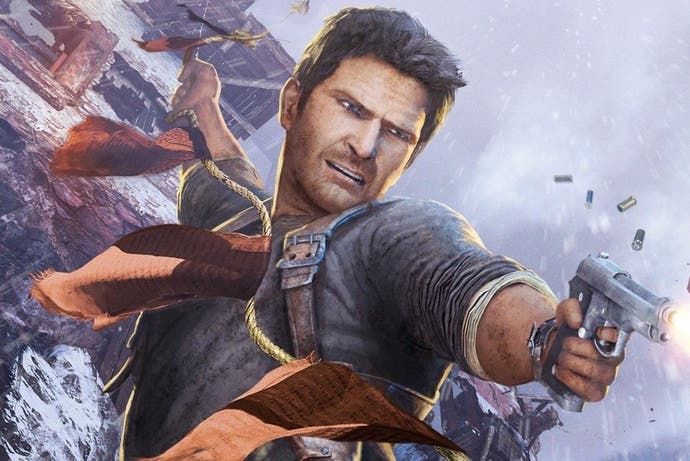Digital Foundry: Hands-on with Uncharted: the Nathan Drake Collection
Great expectations.
The waiting is almost over. In just over a week, Uncharted: the Nathan Drake Collection hits stores, and we're fortunate enough to be in possession of retail code right now, and we're in a position where we can share some initial findings. Developer Bluepoint Games is well known for deftly translating games across hardware platforms, so expectations could not be higher - especially in light of the wealth of enhancements we spotted in the story trailer alone. Well, the good news is that first impressions suggest a product that delivers everything we were hoping for.
In fact, the quality threshold here is quite extraordinary. In a world where many remasters simply bump up resolution and frame-rate and leave it at that, Bluepoint has pushed further, almost blurring the line between remaster and remake. At a basic level, performance and image quality are absolutely on point, but the developer's enhancements go way beyond just that. On top of the improvements brought about by the move to a higher frame-rate, the studio has tweaked the control system so the experience there feels fresh and new. Uncharted: Drake's Fortune benefits the most here, its controls brought more into line with its siblings, but all games in the package feel so much more satisfying to play, thanks in no small part to the reduced input latency.
Assets-wise, each of the three games enjoys a large selection of new textures, models, and effects throughout. Once again, no game in this collection benefits more from these improvements than the original Drake's Fortune. With the limitations of the original PS3 version stripped away, it feels like a game reborn. Of course, Uncharted 2 and 3 have also received similar care and attention, with assets refined and enhanced throughout. Each game feels fresh and holds up remarkably well, even compared to 2015 releases.
Image quality is also well taken care of. All three titles operate at full 1080p with excellent anti-aliasing coverage and what looks like at least 8x anisotropic filtering. Aliasing is kept to a minimum and surface textures remain sharp even at oblique angles. Along with increased resolution, we also see LODs pushed out further along with higher resolution shadowmaps. So we're not just looking at more detailed art here - but more objects visible further into the scene, producing a richer presentation.
Then there is the matter of performance. We expected frame-rates similar to The Last of Us Remastered, but the results are actually significantly better. The majority of gameplay operates at a locked 60 frames per second, providing a very fluid, consistent experience. A number of scenes do suffer from minor performance dips but these drops really go no lower than 55fps, and even that is relatively uncommon - though alpha transparency effects do seem to be the main cause for the frame-rate dips that do occur. We're told that a day one patch is incoming, addressing minor bugs, so the door is perhaps open to some small performance boosts by launch, but even now, the frame-rate is fine.
We can also confirm that vertical sync remains engaged at all times. Of course, once again, this makes the biggest difference in Uncharted: Drake's Fortune, which suffered from pretty serious screen tearing on PlayStation 3. By eliminating this artefact and bumping performance up to 60 frames per second, the game is improved substantially. All three games benefit from this improvement and they each turn in similar performance numbers.
What of motion blur then? We originally expressed concern over the lack of this effect in pre-release footage, and several developers have expressed a preference in removing it from 60fps remasters - as we saw in Journey, for example. The good news is that this effect most certainly is in the collection. What we didn't expect is the amount of control given to the players with this feature. Players are able to enable object motion blur independently or utilise both object motion blur plus camera blur (just the former is enabled by default). You can disable the effect completely as well, if you prefer. It's an unexpected feature and one we greatly appreciate. We'll put this feature through its paces in our next piece in order to determine if it has any performance impact, but for the moment, it does not seem to incur much of a penalty, based on first impressions. We should also point out that the effect is enabled for Drake's Fortune too - in the original PS3 games, motion blur only debuted in the sequel, Uncharted 2: Among Thieves.
We also wanted to address the big cut-scene question. Prior to release, we wondered whether cut-scenes would remain pre-rendered or if Bluepoint would adopt an engine-driven presentation. Opting for a real-time approach would have been highly challenging but we were also uncertain how so much 1080p60 video could be stored on a single Blu-ray disc. Well, in the end, these elements are pre-rendered videos after all, and Bluepoint did indeed manage to cram all three games' worth of FMV content onto one disc. Considering that the original PS3 games all shipped on their own Blu-ray discs, this seems like quite a feat. Of course, compression algorithms today are more advanced and able to produce better quality with less space, but it's still surprising that so much game and video data has been compressed into a mere 50GB. Compression artefacts remain visible but the video quality is still much higher than that of the original PS3 games - the comparison with the original Uncharted in particular is particularly stark.
On top of that, the entire Nathan Drake Collection is held together with an excellent menu system that feels true to the original presentation while offering logical, intuitive navigation. It's easy to move between each of the three games and plentiful options are available for adjustment. All of these menus operate at a full 60fps, with buttery smooth transitions between each selection. It may seem like a minor aspect, but a polished UI is genuinely important in a package like this, particularly when it serves as a bridge between the three titles in the trilogy.
Overall then, first impressions are highly positive. With the game in hand and hundreds of gigs of lossless PS3 footage banked in advance for comparison purposes, we're looking forward to putting more time into this title. We're planning to roll out detailed coverage on a per-game basis in order to truly understand the amount of work that has been poured into this project. It's clear that this project was a labour of love for those involved, and it's equally evident that Sony spared no expense in bringing this remarkable collection to life. We have so much more to share, but in the here and now, the initial takeaway is this: our expectations for this release were sky-high (perhaps unfeasibly so) but everything we've played to date suggests that Bluepoint has delivered - in spades.











